COVID-19 is rapidly spreading, causing devastation, shutting down whole countries. Businesses are shuttered, streets empty. Around the world, people are grappling with this frightening new reality.
But coronavirus isn’t stopping us. We are responding directly to the crisis, providing lifesaving food and medical care, along with essential jobs that people can do anywhere—whether stuck at home by a virus or forced to flee by war.
Because whether it’s being first in when the bombs fall or responding on the frontlines as a pandemic spreads, we are committed to caring for the most vulnerable.
Charity Navigator has named Preemptive Love a top, trusted COVID19 responder, in a list heralded by The New York Times and former President Barack Obama.
Here are three ways we’re responding to the COVID-19 crisis:
1. Food
We’re delivering desperately needed food to thousands of quarantined families.
Iraq
Syrian refugee families have been on lockdown for weeks—they cannot leave to work or buy food. If COVID-19 were to be found in these camps, it would spread unabated. The toll would be devastating.
Families who couldn’t afford to feed their families before coronavirus are in an even worse position now. And those who could afford food are no longer able to do so.
Some desperate parents are begging others to take their children to feed them. One family was even trying to sell their child because they couldn’t feed their baby or themselves.
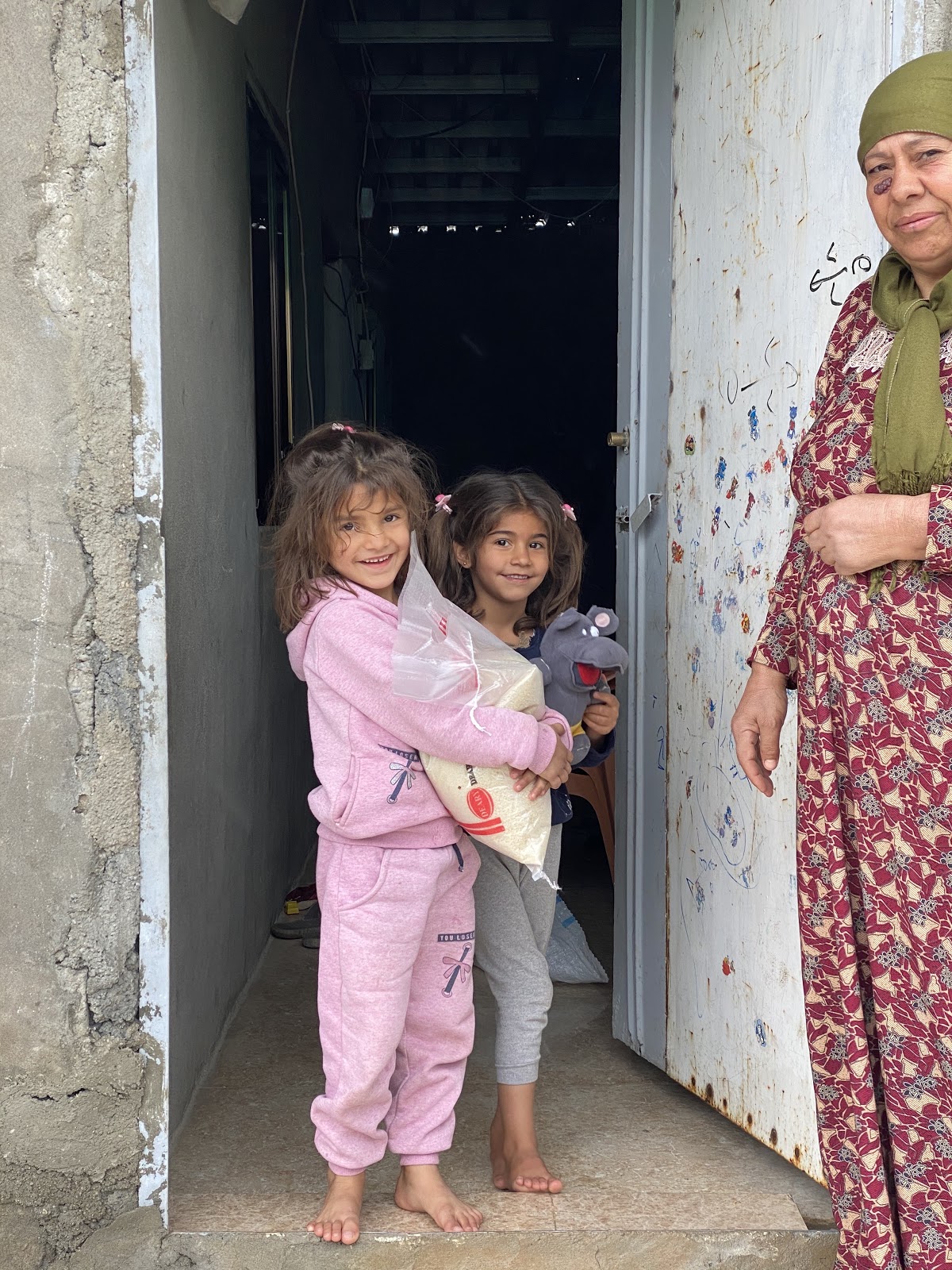
We are feeding families. We are on the ground, and we move fast. Each of our food packs can feed a family for a week.
We’ve already distributed over 2,000 food packs for families in refugee camps, feeding 13,500 people. We have another 2,000 food packs planned in the days ahead. We’re also rushing 1,000 food packs to an entire city that’s been placed on military lockdown.
We are the only aid organization in Iraq responding to the urgent food needs of refugees in Iraq.
Central and South America
Grocery stores in Mexico are empty of basic supplies, and cross-border aid has come to a halt. Poorer communities and shelters for asylum seekers don’t have enough food. We’ve delivered food to our partner shelters, making sure they have enough to feed their residents.
At our medical clinic on the Venezuelan border, we’re seeing a steady stream of impoverished families crossing for food and medicine. The border has become even more dangerous since the COVID-19 crisis. Instead of typical cafeteria-style meals, we’re serving our food to-go, to minimize the spread of disease.
2. Health
We’re providing urgent medical care to those who need it most, installing handwashing stations, and working to increase our supplies of masks, gloves, and sanitizer for our doctors and nurses serving on the frontlines.
Syria
Our mobile hospital on the Idlib border cares for about 100 people every day. Nearly a million people have been displaced in Idlib since December 1, due to the ongoing war here. For so many, our hospital is their only access to healthcare.
We’re providing critical care and surgery, along with a pharmacy and annex tent where people can recover from procedures. Two ambulances are able to go village to village, bringing healthcare to those who cannot reach us.
We employ 39 healthcare professionals in Idlib. It is extremely difficult to provide gloves and masks—as supplies dwindle and prices skyrocket—but our team is sanitizing regularly and trying to limit the number of patients they see at one time, to prevent the spread of disease.
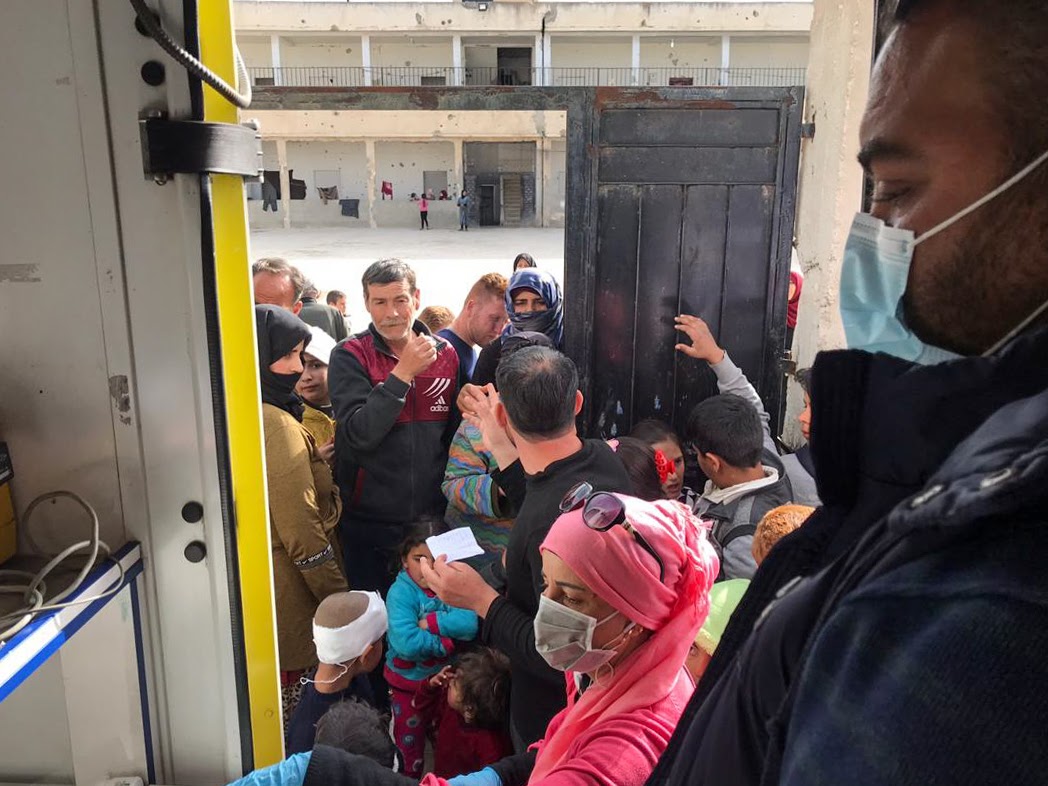
Another clinic serves an area of about 200,000 people in a Damascus suburb. This clinic provides routine care, including maternal health and pediatric services. We are following all safety protocols given by the World Health Organization and local authorities.
Central and South America
Families coming across the border tell us there are no functioning public hospitals in Venezuela. Doctors work out of clinics or their own homes, but they have virtually no supplies to treat patients.
Venezuelans are trapped in their houses, on military lockdown, without food or medical care. So people are taking illegal, more dangerous, and more expensive routes to cross into Colombia. Fewer are crossing than before the pandemic, but they are still coming. They are desperate for relief, for a chance at survival.
At our clinic on the Venezuela border, our full-time medical staff see 40-60 patients every day.
To help, we’re installing sinks, so more people can wash their hands. We are encouraging social distancing and limiting the number of people in a room at one time.
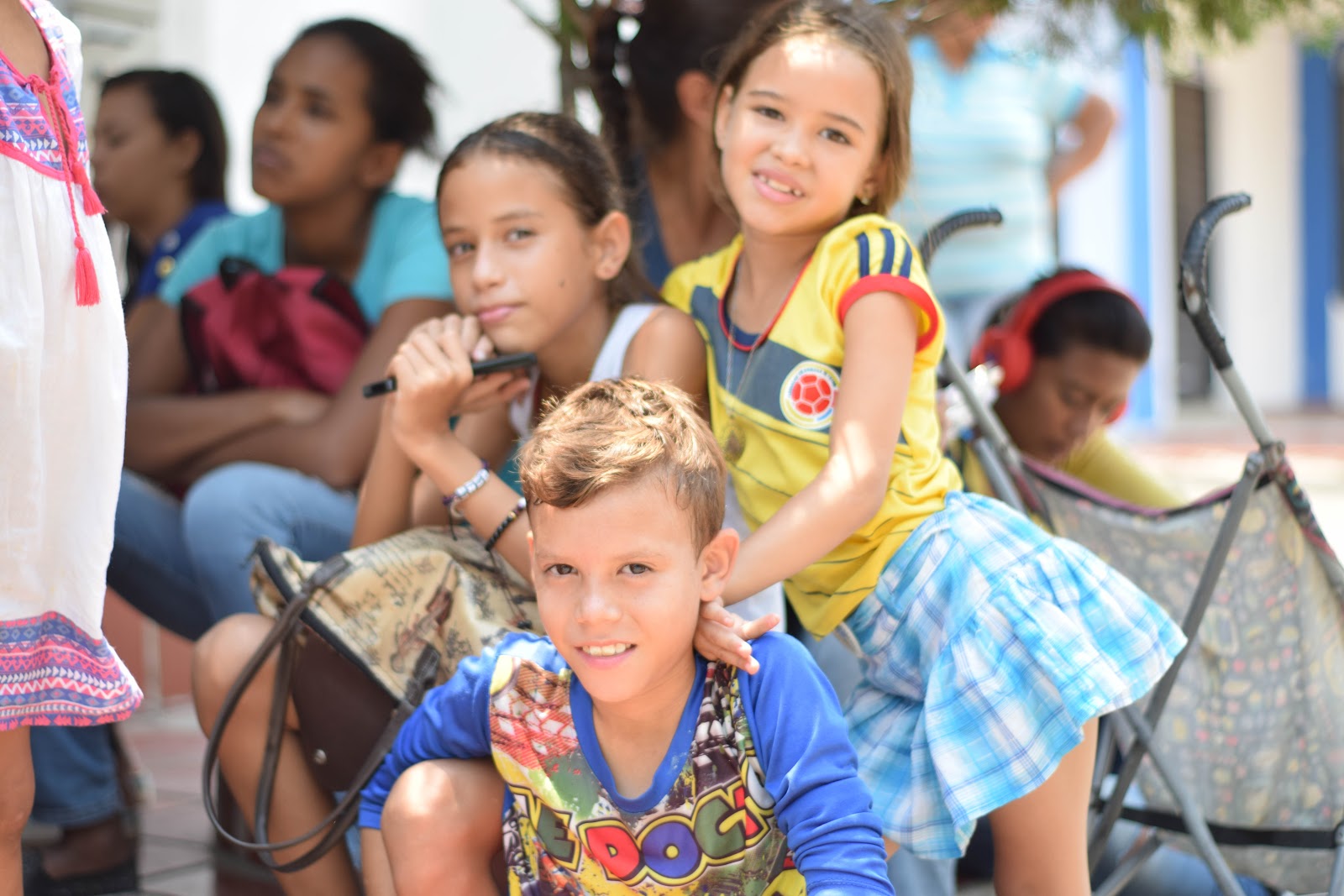
3. Jobs
We’re continuing to create jobs that can withstand upheaval. Digital jobs that can be done anywhere, even under quarantine. Refugee-owned businesses that can continue making goods at home. Farming jobs that continue to provide food and income.
Syria
Our farmers in Syria are continuing to care for their fields. After planting this spring, they’re waiting for their wheat harvest in June. Syria saw a lot of rain in the past weeks, so the harvest has grown faster than expected.
Each farmer will earn about $100 at harvest, which can stretch incredibly far in Syria, allowing them to continue providing for their families. In this rural part of Syria, COVID-19 has not had much impact yet, but we are encouraging farmers to not work in large groups.
Iraq
Our game-changing mobile jobs platform is equipping young people to work in the cloud—so they can keep earning, whether stuck at home by a virus or on the run from war.
Our four tech hubs have temporarily suspended classes, but those students are continuing to work from their homes and earn income. Many have started their own online businesses in fashion, home design, and accounting. Some sell jewelry and have launched websites to promote their business.
Our instructors are working from home, sharpening their skills and encouraging their students online.
Refugee business owners are continuing to work in their homes as well—crocheting and sewing, pouring soap, and making candles. Your shop purchases continue to provide vital income for these families.
Central and South America
Our greenhouse in Mexico is almost ready! Tomato seeds are beginning to sprout at our off-site location and will be moved to the greenhouse as soon as the building is complete. These tomatoes will eventually be sold at market and provide steady income for one of our shelters housing some of the most vulnerable asylum seekers on the border.
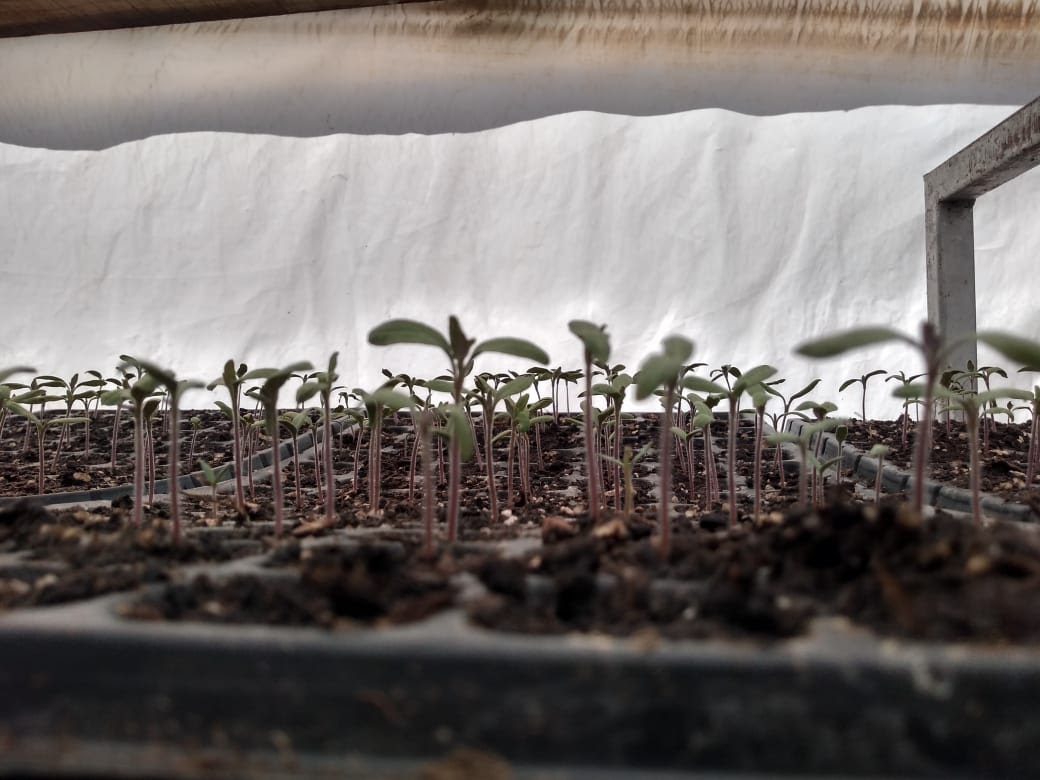
As the pandemic spreads, it is more critical than ever that we feed those who have no access to food, that we keep clinics open and functioning, that we provide a way for people to earn an income and survive.
The only way we can do any of this is if you join us.
Monthly giving is the best way to sustain our lifesaving work. Even $5 a month ensures families continue to be cared for, protected, and empowered in the face of COVID-19.

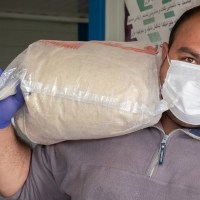
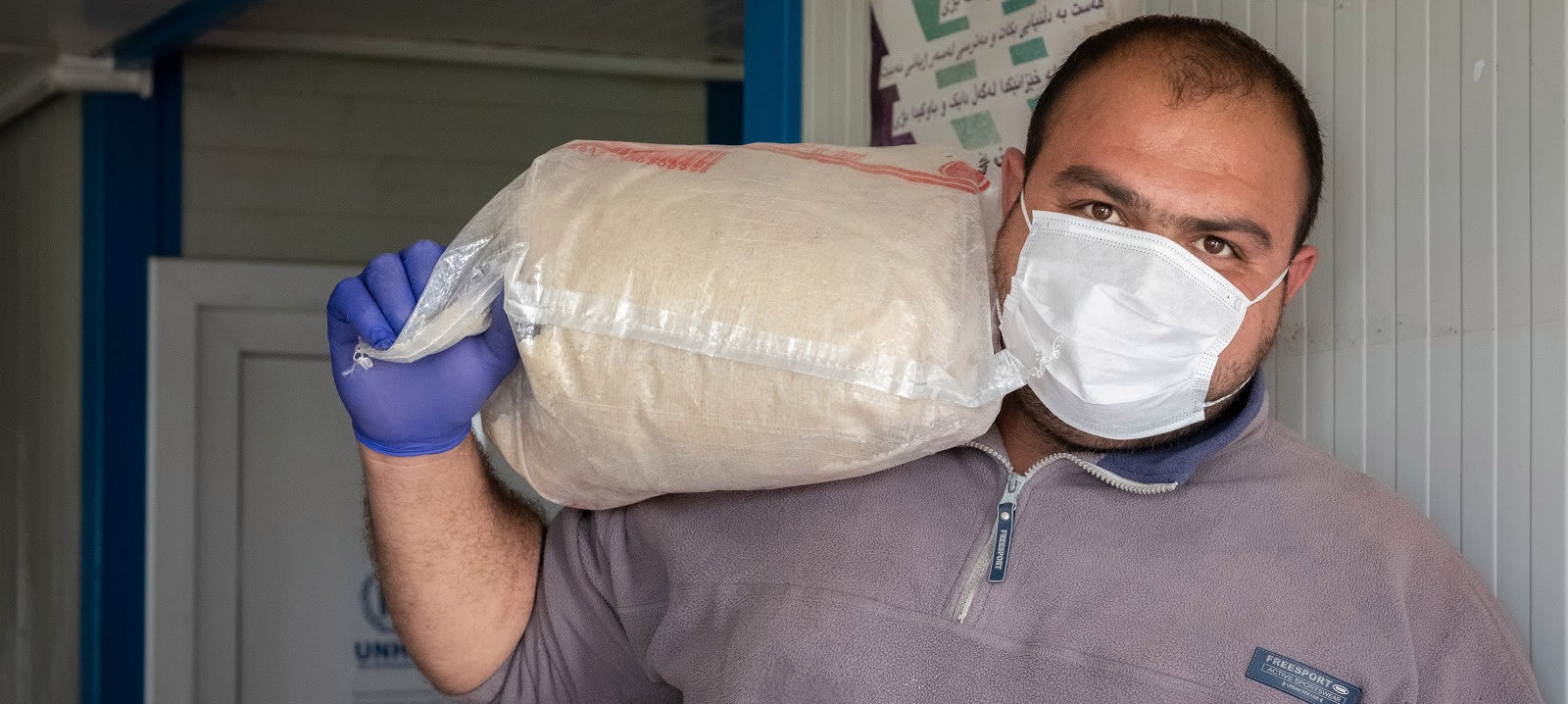
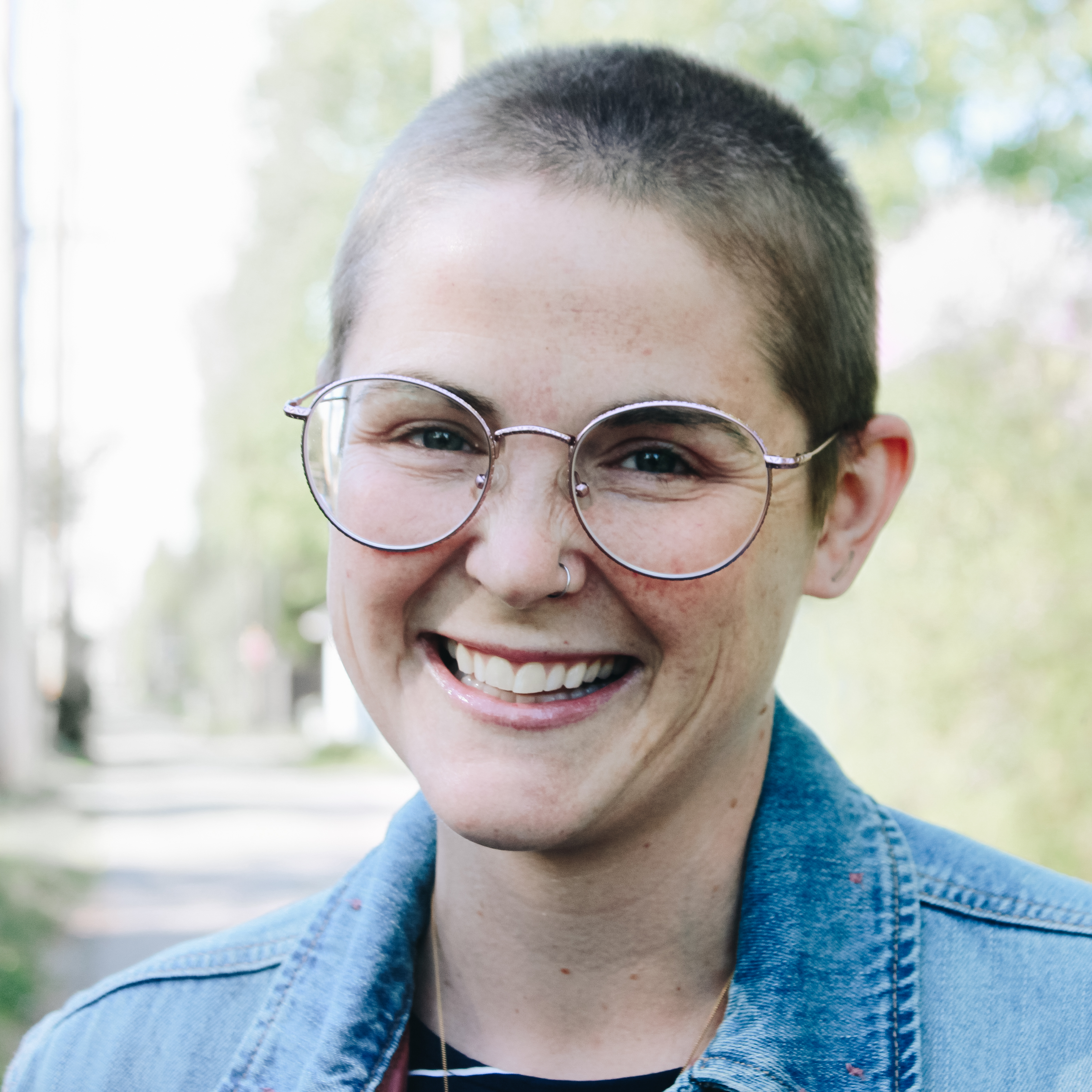 Kim Mack, Ben Irwin
Kim Mack, Ben Irwin